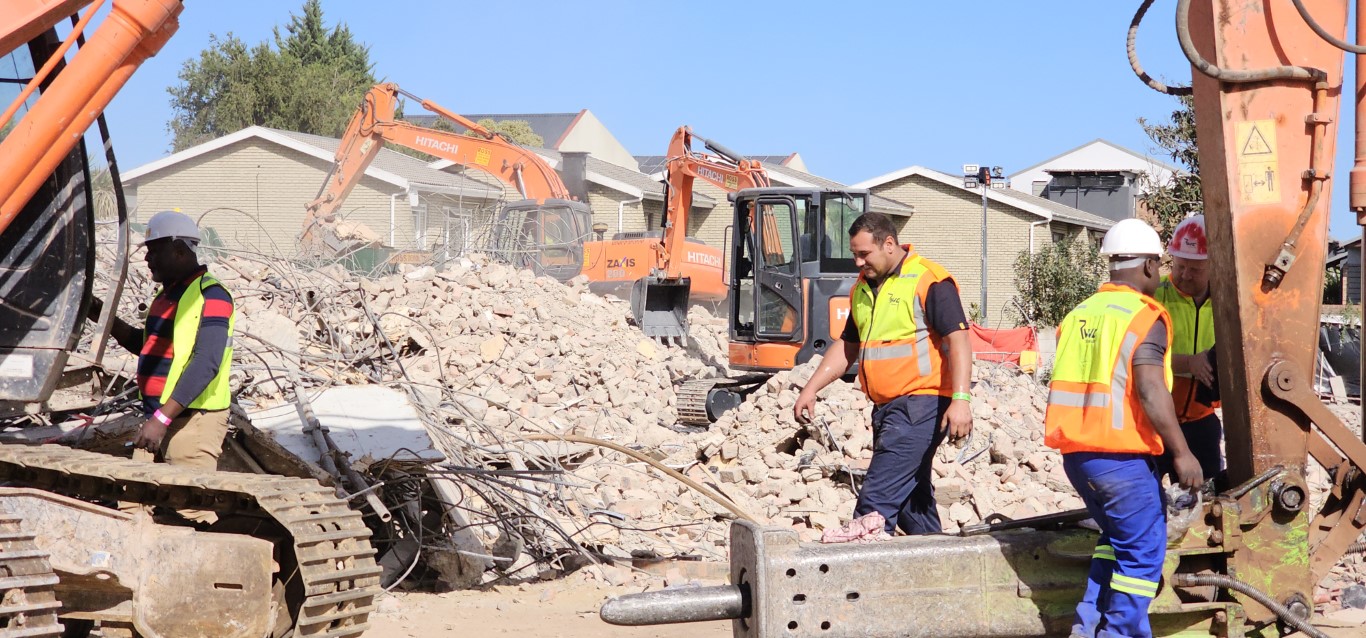GEORGE NEWS - Reforms to the Building Regulations and Building Standards Act are on the cards following the Council for the Built Environment's (CBE) investigation into the causes of the Neo Victoria building collapse on 6 May 2024.
One of the gaps the CBE identified during its investigation was that the building regulations absolve local authorities of any responsibility when something goes wrong on a project for which they approved the plans, and which their building inspectors, in terms of the act, are supposed to inspect.
Describing this contradiction, the CBE's CEO, Dr Msizi Myeza, said: "There is no obligation for them [local municipalities] to ensure that what they approve can stand the test of time."
Myeza was part of a delegation accompanying Public Works and Infrastructure Minister Dean MacPherson to George on Saturday 19 July, when the minister personally shared the CBE report's findings with the families and survivors impacted by the collapse.
In a media briefing afterwards, MacPherson described the closed meeting as a deeply emotional encounter, and said what made him so angry was that the tragedy had been entirely preventable.
Red flags about serious structural problems were raised as early as 2023, but 'a lethal convergence of failures' led to the collapse - systemic failures, planning, oversight and enforcement failures.
According to the CBE's chairperson, Amelia Mtshali, warning signs of structural failure before the collapse included roof slab vibrations and significant cracks around column bases. Concerns were raised about undersized support columns and missing expansion joints. Substandard concrete was used and cracks were patched without proper structural solutions.
The soil investigation was inadequate and groundwater in the basement area exacerbated the structure's instability.
MacPherson said the health and safety officer resigned halfway through the project, stating that they could no longer ensure safe working conditions. He said this should have stopped the project in its tracks.
 Recovery operations on the disaster site. Photo: Alida de Beer
Recovery operations on the disaster site. Photo: Alida de Beer
One of the measures to be introduced to prevent similar disasters in the future is for the CBE to establish a reporting protocol that mandates the registration of any structural system failure.
"A hotline will be launched to allow workers, built environment practitioners and professionals, or members of the public, to anonymously raise safety concerns.
"These reports will trigger automatic inspections and, where necessary, emergency site shutdowns."
In addition to a review of the Building Regulations and Building Standards Act, amendments to the CBE Bill are also proposed, which will give the CBE stronger investigative powers and consolidate regulatory functions.
Amendments to the construction regulations under the Occupational Health and Safety Act are also recommended to strengthen enforcement and accountability of stakeholders, including clients, designers and contractors.
The reforms will be implemented in three phases:
• Phase 1, from 2025 to 2026: Immediate interventions, including new regulations, mandatory standards and emergency protocols.
• Phase 2, from 2026 to 2028: Implementation of long-term reform, including legislative amendments and competency-based registration systems.
• Phase 3, from 2028 onwards: Institutional consolidation and relocation of custodianship of building regulations functions and standards to the Department of Public Works and Infrastructure.
‘We bring you the latest Garden Route, Hessequa, Karoo news’
















